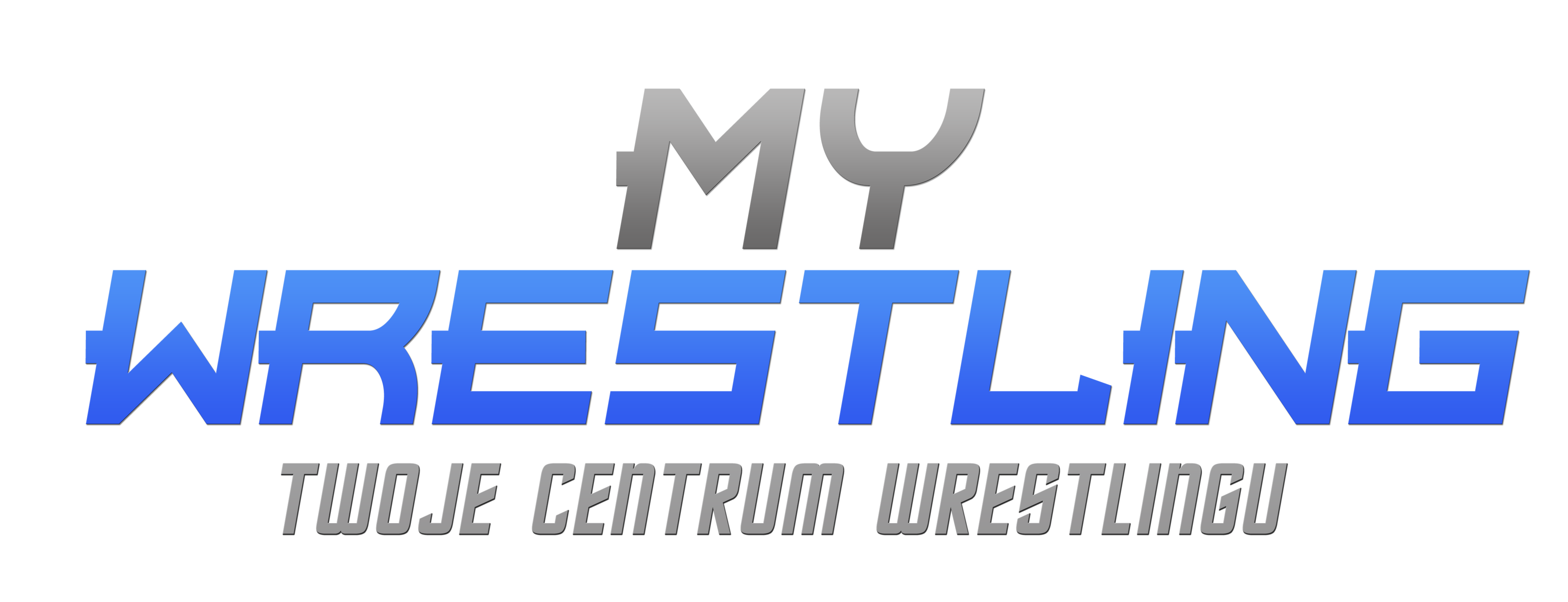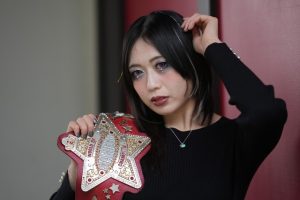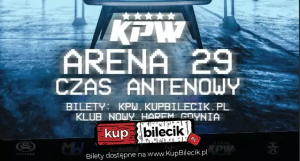Channing Decker: Wywiad dla MyWrestling

Channing Decker to kanadyjski wrestler, który występuje głównie na rodzimej scenie, ale w swoim CV ma też takie federacje jak Big Japan Pro-Wrestling, Smash Wrestling, Impact Wrestling, czy Global Force Wrestling. Stawał w jednym ringu z Jeffem Jarrettem, Sabu, Rhino, MVP i wieloma innymi gwiazdami. Zapraszamy do przeczytania wywiadu!
Polska wersja językowa:
1. Dziękuje za wywiad, Channing. Jak się masz?
– Bardzo dobrze. Dziękuję za zainteresowanie się moją karierą!
2. Jak opisałbyś swoją osobę, tym którzy Cię nie znają?
– Wybuchowy, pasjonujący, atletyczny. Mój styl miesza się z hardcorową wrażliwością, psychologią, obsesyjnym studiowaniem.
3. Jakie są twoje pierwsze wspomnienia z pro wrestlingu?
– Oglądanie w latach 90-tych jako mały chłopiec.
4. W jaki sposób rozpoczęła się twoja przygoda z pro wrestlingiem? Zadebiutowałeś w 2013 roku, czy poprawiła się scena wrestlingowa? Czy mogłeś liczyć na wsparcie rodziny w trakcie przygody z wrestlingiem? Powiedz, kto Cię przeszkolił? Kto wpłynął na twoją decyzję o zostaniu wrestlerem?
– Rozpocząłem treningi w Squared Circle Wrestling School, gdzie trenował mnie Rob Fuego. Od tego czasu popularność sceny niezależnej znacząco wzrosła, podobnie jak liczba wydarzeń wrestlingowych oraz fanów tej rozrywki sportowej. Moja rodzina wspiera mnie, chociaż musiałem być niezależną osobą i przede wszystkim wierzyć w samego siebie.

5. Kiedy odbył się twój pierwszy pojedynek i czy go pamiętasz?
– Późną zimą w 2014 roku. Pamiętam, że mogłem zaprezentować się znacznie lepiej z bardziej doświadczonym przeciwnikiem. Rozpalił mój ogień, przejął kontrolę nad sytuacją i poprowadził nasz pojedynek.
6. Kto był twoim idolem w wrestlingu?
– Terry Funk, mam wielu których głęboko szanuję i się na nich wzoruję, ale przede wszystkim Terry.
7. Skąd wziął się pomysł na twój ring name „Channing Decker”?
– Grając w baseball zyskałem przydomek „On Deck”, co oznacza, że młody student pojawi się wkrótce. Ludzie porównywali mnie do Channinga Tatuma, więc na polecenie znajomego przybrałem nazwę Channing , a Decker przyszło później. Nazwa została zaprojektowana, jako antagonistyczna, bardzo nowoczesna pogawędka. Z czasem, to urosło ze mną.
8. Jak dostałeś się do wrestlingu?
– Oglądałem profesjonalny wrestling już jako dziecko i chciałem doskonalić się w tym sporcie słuchając muzyki, to skłoniło mnie do występów. Poszukałem szkoły wrestlingowej, aby gonić moje marzenia.
9. Jakim jesteś wrestlerem? Heel, Face, Tweener? Co sprawia Ci największą przyjemność z pracy na ringu?
– Czuję się swobodnie zarówno, jako heel oraz face, nie uznaję czegoś takiego, jak tweener. Tylko postacie kierujące się narracyjnie w jednym kierunku. Wyzwanie wielkiego wrestlingu polega na byciu sobą oraz używaniu tych samych „narzędzi” na różne sposoby. Fani uwielbiają to, że oddaje swoje serce podczas występu i potrafię natychmiast zrobić przeskok.
10. Jaka jest różnica między Big Japan Pro Wrestling, a Ultimate Championship Wrestling?
– Big Japan jest wiodącą federacją, w której wrestlerzy walczą w death matchu na całym świecie. UCW, to kanadyjska federacja, która radzi sobie bardzo dobrze na wschodnim wybrzeżu.
11. Channing, przede wszystkim, gratuluję dołączenia do Big Japan Pro Wrestling.
– Dziękuję Ci bardzo!
12. Pracujesz dla Big Japan Pro Wrestling. Jakie są twoje obowiązki wobec federacji?
– Obecnie planuję wrócić do Japonii i dalej walczyć w BJW, po zakończeniu pandemii. Jestem bardzo dumny z death matchów dla BJW.
13. Co to jest BJW?
– BJW, to połączenie deathmatchów oraz silnej walki, które prezentują ogromne talenty z całego świata i walczą na śmierć oraz życie.
14. Jaka atmosfera panuje w BJW?
– To jest, jak sport. Fani w Japonii biorą udział w wydarzeniach wrestlingowych, tak jak Amerykanie uczestniczą w meczach baseballowych.
15. Kto najbardziej pomógł Ci w BJW?
– Podczas pracy w BJW wiele nauczyłem się od Yuko Miyomoto, Isami Kodaka, Masashi Takeda, a cała szatna była dla mnie bardzo przyjazna. Od każdego można się wiele nauczyć.
16. Który moment wspominasz najlepiej?
– Uczucie, które miałem po moim pierwszym występie w Korakuen Hall dla BJW. Moimi rywalami byli Miyomoto oraz Takeda. Uczucie, którego nigdy nie zapomnę. Czułem się, jak król stojący obok kopuły w Tokio, w nowym kraju. Niesamowite.
17. Czy trenujesz kogoś?
– Prowadziłem seminaria, ale szkolenie studentów nie jest obecnie moją pasją.
18. Co będzie twoim kolejnym celem w BJW?
– Chciałbym kontynuować wyzwanie z Takedą, Miyomoto oraz Kodaką, a także wystąpić w deathmatchu o World Championship.
19. Kto wprowadził Cię do BJW?
– Tajiri przedstawił mnie w biurze BJW i zawiązała się przyjaźń między nami, mieszkając w Japonii.
20. Spośród wszystkich pojedynków, które do tej pory miałeś, który jest twoim ulubionym i dlaczego?
– Ostatnio promowałem pojedynek w Toronto w Kanadzie w mojej federacji Greektown Wrestling : pierwsza sensacja BJW w Kanadzie. Moim przeciwnikiem był Matthew Justice i z wielu powodów jestem dumny z tego występu. Jako wrestler, promotor itp… staram się poprawiać, więc myślę o przyszłości.
21. Aktualnie pracujesz dla BJW, czy kiedykolwiek myślałeś o dostaniu się się do innych japońskich federacji, takich jak NJPW lub NOAH?
– Jestem lojalny wobec BJW, ale byłbym zaszczycony mogąc występować w NJPW i innych świetnych firmach japońskich.
22. Czy podczas przygody z wrestlingiem doznałeś poważnej kontuzji? Czy kiedykolwiek kogoś kontuzjowałeś?
– Ciężko trenuję, aby odpowiednio dbać o swoje zdrowie i miałem wiele szczęścia unikając kontuzji.
23. W szatni jest szansa, aby poznać wielu wrestlerów. Kogo z największym nazwiskiem poznałeś?
– Ric Flair
24. Jaka jest różnica między amerykańskim, a azjatyckim wrestlingiem?
– Istnieją duże różnice, od fanów do wrestlerów. Fani szanują wykonawców przede wszystkim, jako gwiazdorów sportowych w Japonii. Północnoamerykańscy fani szukają czegoś więcej, aby bezpośrednio zaangażować się w show poprzez chanty, podczas kiedy w Japonii fani uważnie oglądają show. Amerykański wrestling czerpie siłę z japońskiego silnego stylu, to wszystko miesza się ze sobą.
25. Aktualnie żyjemy w trudnym okresie. Jaki wpływ ma COVID-19 na wrestlerów BJW?
– BJW aktualnie pracuje nad projektami online dla fanów gwiazd BJW.
26. Czy wrestling wróci do normalności?
– W przyszłości, tak!

27. Czy masz jakieś hobby poza wrestlingiem?
– Mam wiele innych zainteresowań, od sztuki po sport, a także priorytetem jest rodzina. Moda, muzyka, kultura, jest tyle do zrobienia w życiu. Uwielbiam tworzyć nowe rzeczy!
28. Co jest najtrudniejszego w byciu single i tag team wrestlerem?
– Świetnie sobie radzę w obu przypadkach, więc mogę być niewłaściwym facetem, którego pytasz.
29. Co czułeś, kiedy zdobyłeś XZW Ironman Championship?
– Byłem dumny po zdobyciu XZW Championship, ponieważ było to moje pierwsze mistrzostwo na terytorium Quebec, gdzie regularnie występuję.
30. Co sądzisz o swojej pracy dla Ring of Honor oraz Impact Wrestling?
– Zostawiłem otwarte drzwi na różne możliwości!
31. Czy jest coś, co chciałbyś powiedzieć czytelnikom MyWrestling?
– Tak, niezależny kanadyjski wrestling, to jedna z najlepszych strzeżonych tajemnic wśród fanów profesjonalnego wrestlingu. Stworzyłem mnóstwo treści dla fanów na YouTubie, aby mogli oglądać moje mecze, a także subskrybować Greektown Wrestling w mediach społecznościowych.
32. Dziękuję za poświęcenie czasu i udzielenie wywiadu dla MyWrestling. Pozdrawiam i życzę powodzenia w karierze oraz życiu osobistym.
– Dziękuję całej Polsce za wsparcie. Cała przyjemność po mojej stronie!
ENGLISH VERSION:
1. Thank you for interview, Channing. How are you?
– Very well thank you for your interest in my career!
2. For those who don’t know you how would you describe yourself?
– Explosive, passionate, athletic my style mixes hardcore sensibilities with my athleticism and obsessive study and psychology.
3. What is your first memory about pro wrestling?
– Watching as a boy in the 90’s!
4. How did you get your start in professional wrestling? As you debuted in 2013, how do you believe that the wrestling scene has improved? What does your family think of your wrestling career? Please tell us who trained you? Who influenced you to become a wrestler?
– I got my start training at squared circle wrestling school trained by rob fuego. Since then popularity of Indy wrestling has grown and the amount of shows and number of fans attending has increased. My family is supportive though I have had to be independent and believe in my own journey above all.
5. When was your first match and what do you remember of it?
– Roughly winter 2014 and I remember feeling that I could have had a much better showing with a more experienced opponent. It stoked my fire to take control of a situation and lead.
6. Who was / is your wrestling idol?
– Terry Funk, I’ve got many that I respect deeply and inspire me, but Terry above all.
7. Where did the idea for your ring name „Channing Decker”?
– Playing baseball I acquired the nick name “On Deck” meaning the young stud coming up next. Folks likened me to Channing Tatum and I married Channing with “Decker” on the referral of a friend over a beer. The name was designed to antagonize, very posh and modern. Verbose. It’s grown with me.
8. How did you get into the wrestling industry?
– Idolizing pro wrestling as a child and excelling in sports and music as a teen, led me to love performance. Sought out wrestling school to chase my dreams.
9. What wrestler are you? Heel, face, tweener? What gives you the greatest pleasure from working in the ring?
– I am comfortable and enjoy both heel and face, I do not believe in the “tweener” role, only characters heading in one direction of the other narratively. The challenge of a great to wrestling is be yourself and utilize the same tools in different ways to achieve the desired result from the crowd whether booing or cheering. I perform with every ounce of my heart and the fans adore that, when I need to be disliked, I can make that jump instantly.
10. What is the difference between Big Japan Pro Wrestling and Ultimate Championship Wrestling?
– Big Japan is the premier federation for death match fighting in the world, UCW is a Canadian independent that has grown into North Pro wrestling and doing very well in Canada’s east coast.
11. Channing, first and foremost, congratulations on your induction into Big Japan Pro Wrestling.
– Thank you very much!
12. You work for Big Japan Pro Wrestling. What are your obligations toward federation?
– I am currently scheduled to return to Japan and compete for BJW upon the ending of the pandemic. I am very proud to fight in deathmatches for BJW.
13. What is it BJW?
– BJW is a mix of deathmatch and strong, they display tremendous technical talent and death match fighting on the same cards.
14. What is the atmosphere like in BJW?
– It is like that of sport. Fans in Japan attend pro wrestling the way Americans attend baseball games.
15. Who helped you the most in BJW?
– In my time with BJW I learned a great deal from Yuko Miyomoto, Isami Kodaka, Masashi Takeda and the entire locker room was very welcoming and talented. Something to learn from everyone.
16. What moment do you remember the most?
– The feeling I has after my first night at Korakuen Hall with BJW against Miyomoto and Takeda was a feeling I will never forget. I felt like a king standing beside the Tokyo dome in a new country, having just performed at Korakuen. Stunning.
17. Do you train someone?
– I have held seminars but training students is not currently a passion of mine.
18. Who is going to be your next target on BJW?
– I would like to continue to challenge Takeda, Miyomoto, Kodaka and fight for the deathmatch world championship.
19. Who do you owe cooperation with BJW?
– Tajiri introduced me to BJW office and I have built friendships living in Japan.
20. Out of all the matches you have wrestled so far, which one has been your favorite and why?
– Most recently I promoted a match in Toronto, Canada under my promotion Greektown Wrestling, the first official BJW sanctioned in Canada. The match was myself vs Matthew Justice and for a variety of reasons, I am very proud of that match. As a wrestler, promoter etc. I am always improving, so I am always out doing past efforts in my mind.
21. You are currently wrestling for BJW, do you ever think you will get into Japan wrestling companies like the NJPW or NOAH?
– I am loyal to BJW though I would be honoured to compete for NJPW and other great Japanese companies.
22. Have you suffered any major or minor injuries while wrestling and what were they? Ever injure anyone else?
– I train hard to stay healthy and I have been fortunate to avoid injuries.
23. In the locker room, you must get the chance to meet alot of other wrestlers, who was the biggest name you’ve met?
– Ric Flair
24. What is the difference between Asian and American wrestling?
– There are big differences from the fans to the wrestlers. The fans respect the performers above all as star athletes in Japan. North American fans are seeking more to be directly involved in the show through chants while the Japanese are truly spectating. American wrestling currently draws heavily from Japanese strong and super juniors of the past and present while mixing other worldly influences.
25. We are currently living in a difficult period. How COVID-19 is working on BJW wrestlers? What does work at BJW look like?
– BJW is currently working on online projects for fans with BJW stars.
26. Will wrestling return to normal?
– In time, yes!
27. Do you have any hobbies besides wrestling?
– I enjoy a ton of other interests from art to sport and prioritize family as well. Fashion, music, culture, there’s so much to do in this life! I love creating new things!
28. What is the hardest thing about being a single and tag team wrestler?
– I excel at both so I may be the wrong guy to ask!
29. What did you feel when you won the XZW Ironman Championship?
– I was proud to win the XZW championship as it was my first primary championship in the territory of Quebec where I wrestle regularly.
30. What do you think about your working with Ring of Honor and Impact Wrestling?
– I always leave the door open to possibilities!
31. Is there anything you want to tell MyWrestling’s readers?
– Yes, independent Canadian wrestling is one of the best kept secrets amongst pro wrestling fans! I have built a ton of content on YouTube for fans to watch my matches as well they can subscribe to Greektown Wrestling across all social media.
32. Thank you for taking the time to interview for MyWrestling. Best regards and good luck in his career and personal life.
– Thank you for your support all the way from Poland, it has been my pleasure!
Jeden z głównych założycieli portalu MyWrestling. Wrestlingiem interesuje się od 2007 roku. Ogląda różne federacje, bo jak to się mówi, dobry wrestling można znaleźć wszędzie. W przeszłości prowadził stronę Tight Wrestling, a poza wrestlingiem interesuje się piłką nożną, muzyką oraz informatyką.









